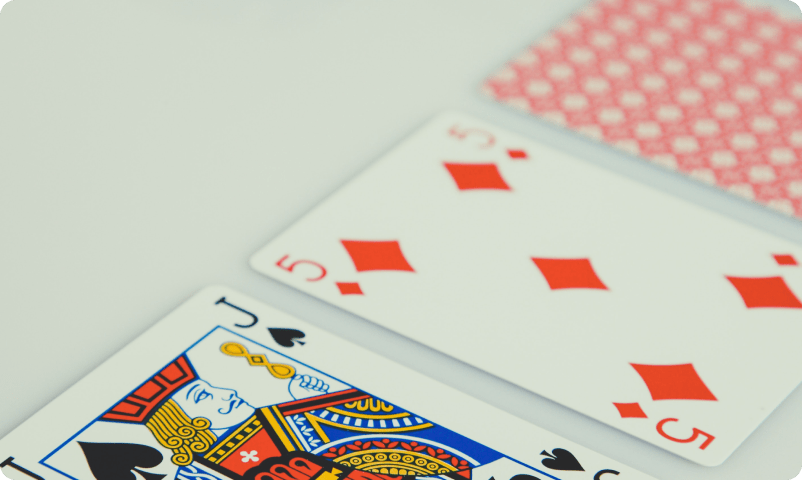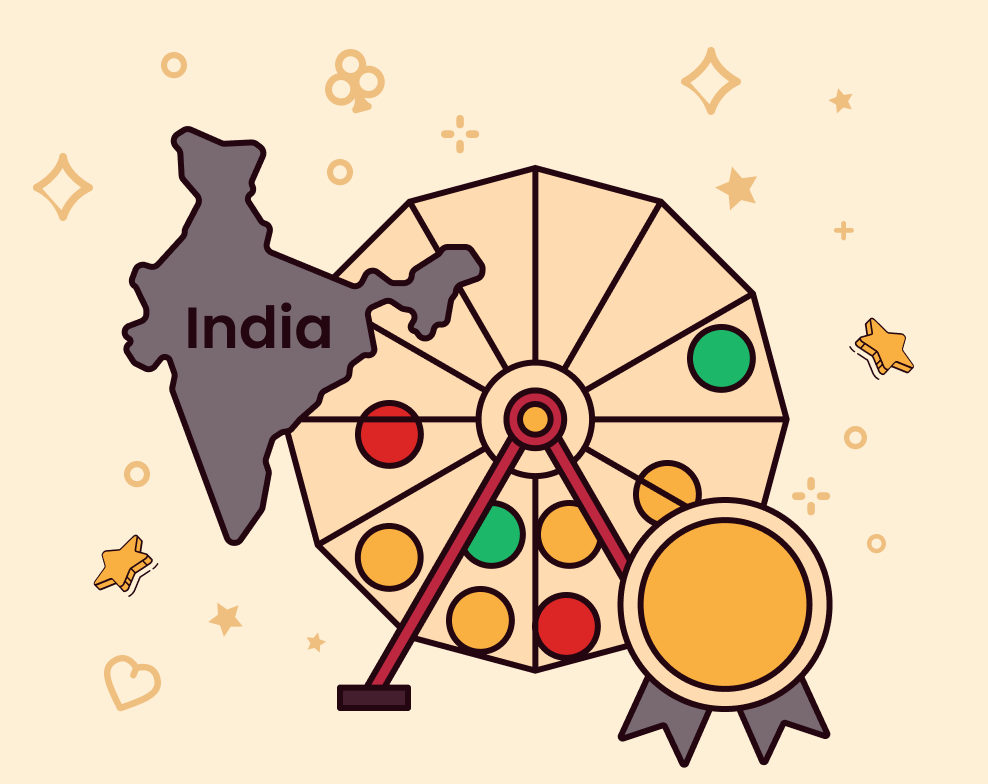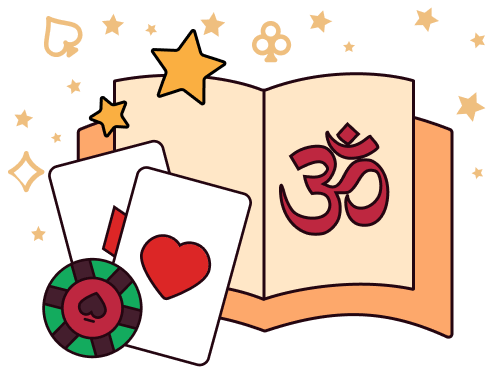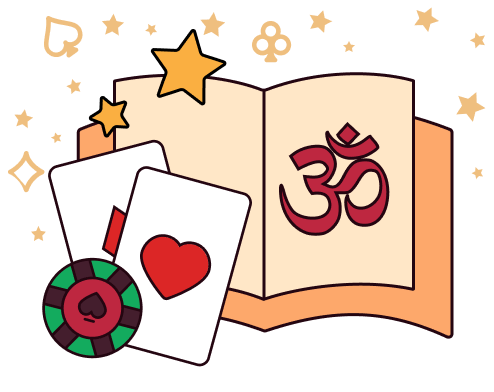
Casinos are today's playgrounds for adults where fortunes are wagered, and memories are created. Each state in the colorful tapestry of India has its special taxation laws and rules about land-based casinos.
To analyze the variations in tax rates, license fees, and other levies that influence the casino sector, let's roll the dice and take a whirlwind journey around different landscapes of India.
Goa: The Casino Heaven
Ah, Goa! Slot machines? The sun, beach, and so forth? Goa is indeed the Las Vegas of India, with casinos that come to life like high-stakes Bollywood films. The government earns significant cash to pay for its beach parties by charging licensing fees that can be as expensive as the bets at the roulette table. The Goa, Daman, and Diu Public Gambling Act of 1976 governs the casinos here. All the land-based casinos in this state are subject to paying a one-time non-refundable licensing fee along with an annual recurring fee. The licensing fee is not fixed and can vary between INR 5-10 crore, mainly depending on the types of games the casinos offer. Additionally, the annual recurring fee can be up to INR 30 lakhs for all onshore casinos, whereas it can go as high as INR 20 lakhs for offshore ones.
The state levies a 15% tax on gross gaming earnings to ensure a sizable share of the pie. Like Goa says, "In our paradise of casinos, everyone wins, especially the taxman!"

Sikkim: The Mountain State of Betting
Lies in the lap of the Himalayas, this mountainous state of India has legalized wagering under the Sikkim Casino (Control and Tax) Act, 2002. All the land-based casinos in this state are subjected to pay a gross revenue of 10% on gambling. Thus, the state charges high taxation, like the colossal height of the Himalayas, while keeping the patrons' entrance charges reasonable.
West Bengal: The Silent Player
The taxation scene of casinos in West Bengal is similar to a silent player at a poker table, flying under the radar. The state has a very low-key approach to casino taxes, charging casinos an ongoing yearly charge of INR 1 crore. While West Bengal isn't shouting the loudest in the casino game, it is unquestionably making a strategic move.
Daman and Diu: The Tax Paradise
Daman and Diu's union territory is known for its beautiful beaches and serene vibe and is a tax paradise for all punters. The casinos in this union territory pay a nominal annual recurring fee of INR 5 lakhs, making it a tax paradise for both the operators and the gamblers since it has opted for a lighter touch in gambling taxation.
Tamil Nadu: A Ban on the Cards
Tamil Nadu is a bit harsh on its decision to legalize state casinos. Therefore, all forms of gambling are strictly prohibited under the Tamil Nadu Gaming Act of 1930. The state's laws reflect its cultural ideals, indicating that some customs are off-limits to gambling. Moreover, with the rising tension of youths indulging in online and land casinos, the state's government has taken such a strong decision.
Maharastra: The State of High Bets
The financial state of India runs to a different casino taxation tune. Under the strict law of the Maharashtra Casinos (Control & Tax) Act, 1976, the state has prohibited casino operators from functioning. However, there is a slight loophole in the decision. Offshore casinos are fully operational, so punters can easily enjoy the thrill of gambling in its waters. Moreover, if we talk about the substantial charges paid by these casinos are quite high and can range between INR 150-200 crore each year. Nevertheless, the patrons need not pay a hefty amount to enjoy gambling; the entry fee can range from INR 1000 to INR 2000 or slightly higher. With the taxes this state levies on casinos, it appears as though Maharashtra is saying, "We may have imposed a ban on casinos, but if you play in our waters, we'll make sure it's worthwhile for you."
Karnataka: The Clueless Bet
The position of Karnataka on casino taxes is as ambiguous as a poker face. Although there are casinos in the state, exact tax information is still unclear. It almost seems like Karnataka is playing cat and mouse with the taxman to keep us all in the dark about the state of the economy.
Andhra Pradesh: A Policy Gamble
The way that Andhra Pradesh taxes casinos is similar to playing a game of fate. The state has alternately permitted and outlawed casinos, keeping business owners and gamblers on their toes. Casinos are not allowed now, but the rules are as erratic as a roulette wheel.
Nagaland: A Blend of Modern Casinos and Taxes
Nagaland is much ahead in the digital revolution as compared to other states. The state has permitted and regulated online casino games, including rummy and poker. The state charges a 10% gross gaming revenue on the platforms hosting the casino games. With its innovative combination of modernism and taxes, Nagaland pioneered online gambling regulation.
Kerala: The Stake of the Beach
Kerala has cautiously entered the Casino industry despite being famed for its tranquil backwaters and verdant surroundings. Only one casino is allowed under the Kerala Gaming Act of 1960. It is an example of quality winning out over quantity. The only casino in the state contributes an annual recurring charge of INR 3 crore, guaranteeing a consistent flow of funds to the state coffers.

Final Words
Each state deals its hand in the colorful deck of cards that picturesquely resemble India's gambling legislation. The public gambling act, laws, and regulations surrounding casinos provide a picture of regional variation and financial strategy, from the high-stakes extravagance of Goa to the calm calculating of West Bengal.
Therefore, keep in mind that in India's casino paradise, the chances are not only influenced by Lady Luck but also by the vigilant eye of the taxman, whether you're rolling the dice in Goa's casino paradise or trying your luck in Sikkim's Himalayan peaks. The saying goes, "When you gamble, you win some, and you lose some, but when it comes to taxes, it's always a sure bet!"
The Latest News


Ana D.
•May 30, 2024
Lotteries and other forms of gambling have a colourful history in India. While lotteries are regulated under a central umbrella, how they are managed is subject to the discretion of state governments. However, the growing popularity of lotteries saw the Lotteries (Regulation) Act of 1998 and the Lotteries (Regulation) Rules 2010 introduced, which established detailed standards for the governments to follow.
Currently, lottery games are legal in 13 Indian states, though anyone of legal gambling age in India can buy international lottery tickets online. The ticket prices and prize pools of government lotteries in India vary depending on the lottery scheme and state in which it is regulated. Tickets for weekly draws begin at modest prices like ₹2 or ₹5 and increase for bumper draws and special schemes.


Akil Khan
•March 21, 2024
Whether you like it or not, luck plays a crucial role in gambling. And while many would argue that it’s an unreliable force, for many Indians, the ancient tradition of Vedic astrology offers a way to understand how luck works in the universe and how one could potentially manipulate it to work in one’s favour.
Vedic astrology (known as Jyotish in Sanskrit) is the practice of studying planetary positions, celestial influences, and karmic patterns to understand how these influence and shape human lives and destinies.
When it comes to gambling, some Indians look to Vedic astrology to boost their chances of success. By analysing astrological charts and horoscopes, and identifying cosmic connections, gamblers seek to find the most advantageous time to gamble, looking for lucky combinations of numbers, or even charms and rituals to help improve their chances.
Let’s look at this more closely:
Planetary configurations
"Muhurtha", an essential principle of Vedic astrology, indicates the opportune time to partake in certain activities based on planetary configurations. It also highlights when best to avoid certain activities. So, in the case of gambling, a player would wait for a favourable Muhurtha to maximise their chances of success.
Presence of the planets
Vedic astrology focuses on nine “grahas”, which are collectively referred to as the “navagrahas” (nava meaning nine). They include the sun (Surya), moon (Chandra), Mars (Mangala), Mercury (Budha), Jupiter (Brihaspati), Venus (Shukra), Saturn (Shani), Rahu (north node of the moon), and Ketu (south node of the moon). According to Vedic astrology, the planet Venus offers luxury and Jupiter provides immense wealth. A conjunction of Jupiter and Venus unafflicted with the moon is therefore said to bring good luck and prosperity.
Birth charts
Many Indians strongly believe in analysing their birth chart in every aspect of their life. This comes from Vedic astrology, which argues that the alignment of different celestial bodies at your birth can provide invaluable insights. In the case of betting, it could highlight a person’s gambling and risk-taking tendencies and subsequent strategies they could employ to maximise their chances of winning, translating into profits and success.
Astrology and numerology
Hindus love to rely on their favourite numbers, particularly when it comes to gambling, and generally prefer odd numbers over even. Seven and eight are considered auspicious numbers, representing success and prosperity. Many Hindus also use these numbers at the time of Diwali when, in some houses, gambling is a ritual. Another lucky sequence of numbers in Hinduism is 786, representing the Trinity of Brahma, Vishnu, and Shiva.


Akil Khan
•March 21, 2024
In casinos, we often hear phrases like good luck and good fortune. Not surprising, really, given how the majority of casino games are based primarily on chance, though some would claim that success is also down to mathematics and algorithms.
In any case, luck plays a crucial role in gambling, and many gamblers will have their own rituals they perform before games or even lucky charms they carry to improve their chances of winning.
Hinduism, one of the oldest practising religions in the world, believes in positive and negative energy, which could define your moves and outcomes. Furthermore, there are several ways one can channel these energies, whether through prayer or certain objects such as charms or symbols. We shall discuss these in more detail below.